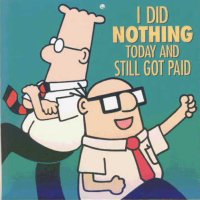OK, this is going to be a long and unusually confessional post, and many of you will think I'm very silly. So be it. You're right.
A couple of weeks ago, I was in a blue funk for really dumb reasons, particularly given that I've got several good friends with
real challenges in their lives right now. But for good reason or for poor, I was mildly depressed due to frustration with various realities regarding my wonderful church,
Church of the Holy Comforter. And I've become good friends with the folks at another church,
Mars Hill Church, and in my little frustrated mind, everything that was "wrong" with Holy Comforter (CHC) was "right" with Mars Hill (MH). So (and this actually goes back a couple of months at least), my mantra has been "I'm
not a consumer Christian," and I've been sternly telling myself that I will certainly not jump ship from my wonderful church that I love and which has helped me so much on my journey, especially when it might need me most. And all the while feeling sorry for myself. Poor me.
So last week I came to a question that was kind of like a decision: couldn't this be a both/and scenario? I didn't know. I confessed some of what was going on in my monkey brain to Fr. Rick and Fr. Lou at CHC and then to Deanna, who's on the leadership team at MH. Specifically, I asked Dee if she thought it would be OK if I gave myself permission to consider myself a "real" member of MH (I've been sort of "extended family" for a bunch of months now) and started showing up on Sundays sometimes, contributing financially and in other ways, and participating more in various manners - all without intentionally weakening my commitment to CHC. On Friday, Dee wrote me back, very graciously, and told me that as far as she was concerned, in a church with no formal membership, I was already a member by any meaningful measure, and they'd love to see more of me.
The rest of that Friday, I could be heard whistling the theme from that 80's TV, show, "The Greatest American Hero".
Believe it or not, I'm walking on air.... :-)
So this past Sunday was a pretty emotional day for me, for lots of reasons. I got up at 6 AM to drive for the
Hypothermia Response emergency shelter program being run by a couple of Fairfax County mission organizations (
FACETS and the
Lamb Center). The mission of that program is to prevent hypothermia deaths among the homeless population of Fairfax County by providing emergency overflow shelter in local churches when the permanent shelters are full - which is every winter night. The number of nightly guests is approaching seventy. So normally, the job of the driver is to pick guests up at the host church and drive them to the Lamb Center, where they'll be able to stay warm, get lunch, etc. But on Sundays, the Lamb Center is closed. So I had to drop these good people off in a parking lot on Rt. 29 in Fairfax, and watch them walk away from the van with nowhere really to go until evening. Let me tell you, brothers and sisters, that was a hard thing. I cried driving home.
I calmed down a bit by going for a jog, then got dressed up and went to CHC for Mother DeDe's going away reception. She's moving on in her journey and pursuing a doctorate in Christian Ethics, which is wonderful, but it was hard to say goodbye, even though we never got to know each other too well. Then I ushered at the 11 AM service, and it was a good thing I was in the back, because I was getting choked up - again - during Rick+'s sermon. His sermon was on
2 Kings 4:8-37, and to me, the story and Rick's sermon were completely about my friends Mike and Stacy, though I know this was only in my own mind.
After the service, I ran home, changed, wolfed down a slice of cold pizza, and rushed off to a FACETS property to participate with Mars Hill in their monthly "service worship"; in this case, helping clean the apartment of a FACETS client. This was
so wonderful for me. I got to spend time talking with and getting to know better these incredible folks from what was now in my mind "my church" while helping somebody out who was so very sweet and happy to have us there. At one point we sent out a small shopping expedition to get some more cleaning supplies, and Dee suggested they also get something nice, like a bouquet of flowers. Well, our hostess was absolutely tickled pink about the flowers. For me, this was the highlight of an emotional rollercoaster of a day, even though there was more good stuff to follow. "Da da da da da, I'm walkin' on air...."
The "good stuff" that followed was an incredibly fun Super Bowl party at the home of Mars Hill's Diana and Paul, hostess and host extraordinaire. Great food and drink, and just a wonderful opportunity to relax and hang out and chat with folks - and a lot of folks from the church were there. And I guess there was some football game going on. I could tell by how worked up
Israel was getting. ;-)
Holy cow, what a day. I got home around 11 PM and slept like a dead man for nine hours.
All right, now I need to rewind to the middle of last week. If you've stuck with me this far, you must love me. I said it would be long.
So early last week, I got invited to a CHC Missions meeting scheduled for this coming Monday. Frankly, I immediately dreaded it. It had to do with some of the things I mentioned that frustrated me about CHC, which in my mind were "right" about MH. In this case, what was bugging me was the fact that we tend to do ministry like a business meeting: show up once every few weeks or few months, pray for three minutes, run down an agenda for two hours, pray for three minutes, then "break!" and rush off to the next thing in our busy lives. Very little opportunity for fellowship or shared spiritual practice as a team. So midway through last week, I decided that I wasn't going to silently grumble and dread this. Instead, I'd suggest doing things a little differently. So I volunteered to show up 1/2 hour early and bring food and drink, and invited the rest of the team to come early too for some fellowship time with no agenda. And I also suggested that we spend the first 20 minutes of our "agenda" time in group reflection on a Bible passage - in this case,
Luke 10:1-12.
Well, the response was overwhelming positive! Everybody loved the ideas, and most people showed up early and brought food and/or drink. We followed with a spirited and illuminating Bible study, and followed that with an equally spirited discussion of Missions priorities in which consensus was achieved on important matters about three minutes after we had collectively given up. It was a
great meeting! "Believe it or not, I'm walkin' on air...."
It taught me two things: 1) never,
ever silently grumble, especially about church matters, because you can't tell what the Spirit is up to! And 2) much of my frustration about CHC, like my angst over whether MH would want me to be a "real" member, has to do with my own mental blocks, not God's reality. So God, forgive me for my lack of faith! And thank You for, again and again and again, blessing me to a ridiculous degree. I know humans are pattern-seeking animals with an evolutionary predisposition to connect dots and interpret reality according to their own current assumptions. I'm a theist, and a strong believer in divine providence, so I'm going to look around and see the hand of God. I know this, but nonetheless, it's impossible for me not to see God's hand in bringing me here to Vienna, Virginia, and connecting me to not one, but two, gloriously wonderful communities of faith. Praise God, and thank you, churches. I love you all.
 The first chapter of CCotC is entitled "Mission and Evangelism: the Emergence of the Theological Challenge". In it, Guder recounts:
The first chapter of CCotC is entitled "Mission and Evangelism: the Emergence of the Theological Challenge". In it, Guder recounts:






